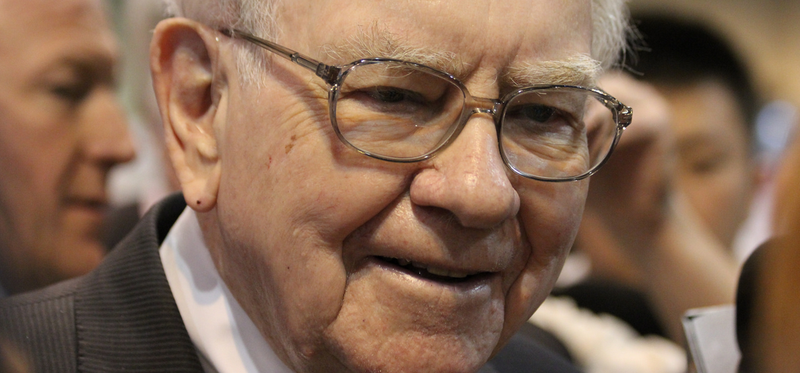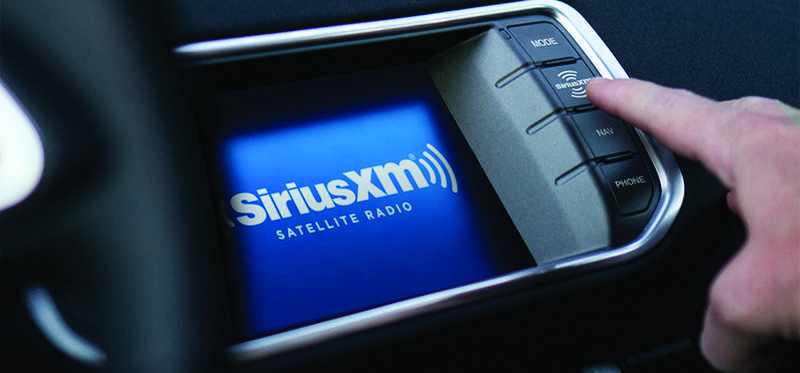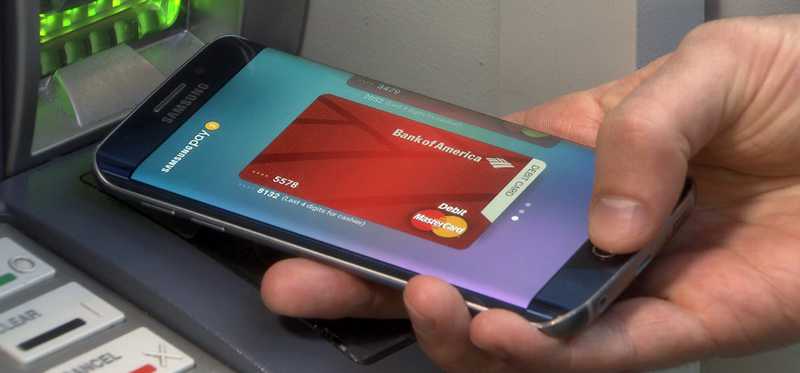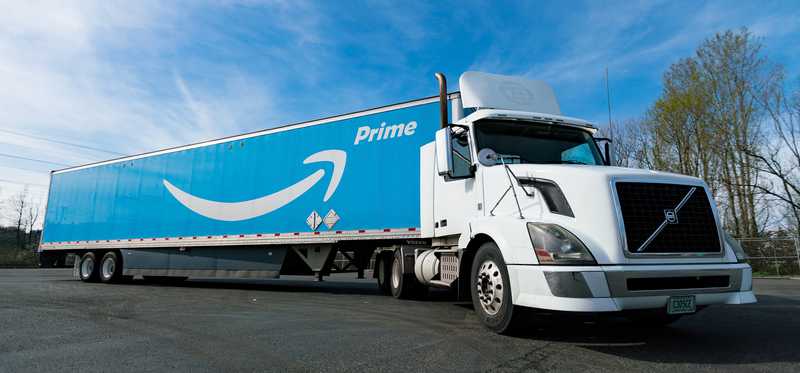Warren Buffett Owns These 10 Companies

Warren Buffett Owns These 10 Companies
Buffett’s investing style is simple, yet legendary
When it comes to investing prowess, Berkshire Hathaway (NYSE: BRK-A)(NYSE: BRK-B) CEO Warren Buffett has a tier all to himself. That’s because, in a span of more than six decades, the Oracle of Omaha, as he’s known, transformed $10,000 in seed capital to a net worth of more than $80 billion. Keep in mind that Buffett’s net worth is a rather conservative figure considering the tens of billions he’s given to charity over many years.
Buffett’s claim to fame has been his ability to spot businesses with long-term competitive advantages. He’s not using fancy charting software or trying to bully his way onto a company’s board like an activist investor. Instead, Buffett focuses his efforts on a couple of sectors of the market and either acquires, or makes investments in, businesses within these sectors. Then he simply waits patiently for his investment thesis to pan out. He may not always be right, but over the long haul he’s proven quite successful with his long-term approach.
Right now, Buffett’s portfolio (via Berkshire Hathaway) contains 47 securities worth over $216 billion. But the following 10 companies that Buffett owns might be aptly described as his most intriguing and telling investments.
Previous
Next

1. Apple
It’s impossible to talk about Warren Buffett’s holdings without discussing the stock that comprises more than a quarter of his entire portfolio’s value: Apple (Nasdaq: AAPL).
While most folks have written off Apple as a growth story, Buffett continues to see value in the tech giant, which in itself is interesting given Buffett’s dicey track record with tech stocks (ahem, IBM (NYSE: IBM)). Apple stands ready to take advantage of the next big thing in data evolution: the upgrade to 5G networks. The company should be introducing a redesigned iPhone that’s 5G-capable by Sept. 2020, which will give all four of the United States’ major wireless providers time to build out their infrastructure to reach more cities. Since 2013, Apple’s iPhone has comprised between 51% and 70% of total sales in all but one quarter (it’s most recent, Q3 2019).
Apple is also a company in transition. CEO Tim Cook and his team want to see Apple transform into a services business, with streaming TV and music, as well as wearables and even an Apple credit card, driving engagement and fast-growing revenue streams. Clearly, innovation isn’t an issue.
As the icing on the cake, Apple has regularly repurchased its own stock, which is something the Oracle of Omaha really seems to favor.
Previous
Next

2. Sirius XM Holdings
You might also be surprised to learn that Buffett’s company owns nearly 138 million shares of satellite radio giant Sirius XM (Nasdaq: SIRI).
On the surface, this wouldn’t seem like a traditional Buffett investment. We’re talking about a company that’s currently carrying around more than $8 billion in net debt on its balance sheet, and is paying out an annual yield of 0.78%. That’s actually a lower yield than U.S. Treasuries at the moment.
But underneath the surface lies a company that actually hits on one of Buffett’s favorite ideals: the competitive moat. You see, there are no other satellite radio providers, which places Sirius XM into a niche of its own.
Further, whereas most of its peers are almost completely reliant on advertising revenue, making them susceptible to economic contractions and recessions, Sirius XM generates most of its revenue from subscriptions. Subscribers are far less likely than advertisers to tighten their wallets during periods of economic contraction. And, may I add, it also doesn’t hurt that Sirius XM’s satellite transmission costs are relatively fixed. This is a fancy way of saying that no matter how many subscribers it has for its satellite service, its transmission costs remain about the same.
As the only satellite radio network available, Sirius XM has excellent pricing power and the ability to consistently grow sales, margins, and profits -- the hallmark of a Buffett stock.
Previous
Next

3. Bank of America
It’s no secret that Warren Buffett loves financials. In fact, the 15 financials Buffett owns currently make up a little more than 45% of Berkshire’s invested assets. But at the top of the list is Bank of America (NYSE: BAC), for which Berkshire owns 950 million shares. That’s good enough for a 10.2% stake in the company.
Bank of America first became a Buffett buy back in August 2011. In return for a $5 billion investment just after the height of the Great Recession, Buffett became the owner of preferred shares from Bank of America that paid a handsome 6% yield. Buffett loves to be greedy when others are fearful, and this initial buy into Bank of America is a prime example. Today, Buffett’s ownership stake is worth more than $27 billion.
Bank of America has benefited in recent years by notably reducing its operating expenses and closing some of its physical branches. As banking moves online, the company has made efforts to meet younger consumers by pushing mobile banking applications.
Additionally, no money center bank is as interest sensitive as B of A. With interest rates pushing off their Dec. 2008 to Dec. 2015 lows in recent years, it’s allowed Bank of America to generate a hefty amount of net interest income.
Previous
Next

4. Visa
Buffett is also a big fan of global appeal, which is why payment processing company Visa (NYSE: V) likely flashed on his radar. Berkshire Hathaway first bought into Visa back in the third quarter of 2011 (the same time as Buffett’s original B of A investment), with the position worth about $1.9 billion as of today.
Visa is a giant in the U.S., with more than half of all credit market share as measured by network purchase volume. That’s more than 30% higher than its next-closest rival Mastercard (NYSE: MA), another Buffett holding. Since Visa isn’t a lender, the company isn’t impacted when lending delinquency rates rise, which isn’t the case for many of its peers. This is why Visa’s been able to grow year in and year out for such a long period of time.
But as noted, Visa is about much more than just the U.S. market. It acquired Visa Europe back in June 2016, and has an incredible long-tail opportunity to grow in the Middle East, Southeast Asia, Africa, and other underbanked regions of the world. With approximately 85% of global transactions still conducted in cash, there’s a mountain of opportunity that awaits Visa.
Previous
Next

5. American Airlines Group
Sometimes even the Oracle of Omaha changes his mind. Back in 2007, Buffett’s annual shareholder letter blasted the airline industry for requiring significant amounts of capital to incite growth, yet ultimately generating minimal margins. But time heals all wounds and ideas apparently, because Buffett currently owns nearly $1.2 billion worth of American Airlines Group (Nasdaq: AAL).
The presumed thesis behind the second half of 2016 purchase in American Airlines likely had to do with falling crude prices. Earlier in 2016, West Texas Intermediate briefly dipped below $30 a barrel. Since fuel costs are airlines’ top expense, failing oil prices meant the probability of significantly higher profits in their future. This did, indeed, turn out to be the case. Today, most airlines, including American Airlines Group, trade for a very low forward price-to-earnings ratio.
However, Buffett’s fascination with the airline industry could come back to haunt him. Airlines don’t have the best long-term track record, and no major airline bears more of a net debt burden than American Airlines Group at more than $29 billion. A relatively low interest rate environment is helping, but it’s unclear how well positioned American Airlines Group is to withstand a possible downturn in the U.S. or global economy.
Previous
Next

6. Amazon
Even the greatest investor of our generation has regrets. One of those is not jumping on the Amazon (Nasdaq: AMZN) bandwagon sooner.
Earlier this year, Berkshire Hathaway began nibbling on shares of Amazon for the first time ever. Through the end of June, Buffett and his team had built up a position of just north of 537,000 shares, which is worth about $931 million today.
The allure of Amazon is simple: It’s well-known, and it offers numerous avenues of growth. Most folks know Amazon for its premier e-commerce business. According to second-quarter estimates by eMarketer, Amazon is expected to control 38% of all e-commerce sales in the U.S. in 2019. The next-closest competitor is eBay (Nasdaq: EBAY) at closer to 6%. That’s how dominant of an e-commerce platform Amazon has, and its Prime membership is the icing on the cake that keeps consumers loyal to the brand.
What most folks may not realize is that Amazon’s future is truly dependent on its cloud services business, AWS (that stands for “Amazon Web Services”). AWS is growing light years faster than the e-commerce segment, and it’s a considerably higher margin operating division. Of the $123.1 billion in net sales generated during the first six months of 2019, just $16.1 billion came from AWS. But this $16.1 billion led to $4.3 billion in operating income out of the company’s $7.5 billion in total operating income. AWS is Amazon’s future growth driver, and Buffett is happy to now have his stake of this dominant business.
Previous
Next

7. Teva Pharmaceutical Industries
It’s also important to understand that while Berkshire Hathaway has more than $216 billion invested in close to four dozen securities, Buffett isn’t in control of every invested penny. He has a team of managers that also control a certain percentage of investable funds, and that can sometimes mean buying companies that don’t fit the bill, at least in terms of a traditional Buffett stock.
Take brand-name and generic-drug developer Teva Pharmaceutical Industries (NYSE: TEVA) as a good example. Berkshire first added Teva to its portfolio during the fourth quarter of 2017. Following another round of purchases, Teva now accounts for about $298 million in Berkshire’s portfolio. Unfortunately, Teva’s stock has been throttled in 2019, with the company facing opioid lawsuits in most states, as well as contending with high debt levels and generic-drug pricing weakness.
Interestingly, Teva wasn’t Buffett’s choice. Rather, it was one of his trusted investing managers that added the position. Although Teva is incredibly inexpensive on the basis of forward earnings, and the generic-drug business has a long-term growth opportunity, the company’s high debt levels, and its involvement in the drug space, are dead giveaways that this purchase wasn’t Buffett’s doing. Buffett has little time to follow clinical trials, which is why he tends to avoid buying stock in drug companies.
Previous
Next

8. Coca-Cola
You may have heard of the idea of buying into businesses that you know, use, or purchase from. This is an idea that Buffett himself has taken to heart via Berkshire’s ownership of 400 million shares of Coca-Cola (NYSE: KO). Even at 89 years of age, Buffett consumes five cans of Coca-Cola per day.
Aside from Buffett having an emotional connection with the Coca-Cola brand, he and Berkshire benefit from the company’s unsurpassed geographic diversity. With the exception of North Korea, Coca-Cola operates in every country in the world, has some of the highest brand recognition from consumers around the globe, and has 21 brands that generate at least $1 billion in annual sales. Plus, it’s a consumer staple, meaning people’s buying habits change very little regardless of how well or poorly the U.S. or global economy is performing.
Despite being a generally slower-growing company, Coca-Cola offers strong pricing power and generally predictable cash flow and costs. This has played a big role in allowing it to raise its dividend for 57 consecutive years, making it one of the market’s most elite Dividend Aristocrats. Not to mention, Coca-Cola will net Berkshire Hathaway $640 million in dividend income this year.
Previous
Next

9. Kraft Heinz
Even the Oracle of Omaha makes mistakes, as evidenced by Berkshire’s relatively large stake in food and beverage company Kraft Heinz (Nasdaq: KHC). The 325.6 million shares of Kraft Heinz owned by Berkshire represents 26.7% of the company’s outstanding shares.
Since the year began, Kraft Heinz stock has shed 37% of its value, and it’s down a whopping 65% over the trailing two-year period. Earlier this year, the company took a massive $15.4 billion writedown on a variety of its core brands, but is still left with a disheartening $36 billion in goodwill and $30 billion in net debt. In Berkshire’s most recent annual shareholder meeting, Buffett admits that Heinz overpaid for Kraft Foods in 2015, and this eyesore of a balance sheet is the end result. It’s evident that the company needs to spend on innovation in order to drive consumer engagement, but it simply doesn’t have the capital to do so.
But in spite of Kraft Heinz’s struggles, Buffett has no intention of exiting the position. With a 26.7% stake in the company, selling off 325.6 million shares would add significant pressure to Kraft Heinz stock. For now, the greatest investor of our generation can only hope that Kraft Heinz sells off non-core brands and tightens its belt to lower its total debt.
ALSO READ: These 4 Stocks Have Cost Warren Buffett More Than $6 Billion in 2019
Previous
Next

10. Wells Fargo
But most of all, Buffett just likes to buy into businesses and hold for a very long time. That’s the case with Wells Fargo (NYSE: WFC), a money center bank that’s been part of Berkshire’s portfolio for three decades and counting.
What’s particularly notable about this position, currently worth $20 billion, is that Buffett hasn’t been deterred by Wells Fargo’s fake account scandal that rocked the bank in 2016/2017. Wells Fargo’s aggressive branch-based cross-selling tactics led to the opening of 2.1 million fake accounts that were uncovered in 2016, with this figure being upped to 3.5 million the following year. Since this revelation, Wells Fargo has seen two CEOs head for the exit, and the bank has been trying to save face, so to speak.
If we’ve learned anything, though, it’s that banking customers have pretty short-term memories. No one remembers Bank of America trying to charge its customers to use their debit card in 2011, or the numerous wrongdoings on its part during the mortgage meltdown a decade ago. Today, B of A is one of the stronger money center banks, and Buffett realizes Wells Fargo can get back to greatness as well by sticking to the bread-and-butter banking basics (say that three times fast) of growing loans and deposits.
Previous
Next

You, too, can invest like Buffett
The thing to understand about Warren Buffett’s investing strategy is that it’s easy enough for anyone to be successful. Regardless of whether you’re a millionaire or putting your first $500 to work, or if you’ve been investing for three weeks or 30 years, a couple of simple rules could have you on your way to serious wealth creation.
While this is by no means a compendium of investing philosophies Buffett lives by, these are the basic rules that’ll get you pointed in the right direction:
- Buy businesses, not stocks.
- Fully understand the businesses you’re buying into, which is best done by digging into only a few industries or sectors.
- Don’t be afraid to avoid diversification if you have an excellent understanding of the industries and sectors you follow.
- Buy as if the stock market will be closed for the next 10 years.
- Seek out businesses with long-term competitive advantages.
Suffice it to say that you don’t have to be Warren Buffett to have Buffett-like investing success over the long run.
John Mackey, CEO of Whole Foods Market, an Amazon subsidiary, is a member of The Motley Fool’s board of directors. Sean Williams owns shares of Bank of America and Teva Pharmaceutical Industries. The Motley Fool owns shares of and recommends Amazon, Apple, Berkshire Hathaway (B shares), Mastercard, and Visa. The Motley Fool is short shares of IBM and has the following options: short January 2020 $200 puts on IBM, short October 2019 $37 calls on eBay, long January 2021 $200 calls on Berkshire Hathaway (B shares), long January 2021 $18 calls on eBay, short January 2021 $200 puts on Berkshire Hathaway (B shares), short January 2020 $155 calls on IBM, short January 2020 $155 calls on Apple, long January 2020 $150 calls on Apple, short January 2020 $155 calls on Apple, long January 2020 $200 calls on IBM, and long January 2020 $150 calls on Apple. The Motley Fool recommends eBay and Sirius XM Radio. The Motley Fool has a disclosure policy.
Previous
Next
Invest Smarter with The Motley Fool
Join Over Half a Million Premium Members Receiving…
- New Stock Picks Each Month
- Detailed Analysis of Companies
- Model Portfolios
- Live Streaming During Market Hours
- And Much More
READ MORE
HOW THE MOTLEY FOOL CAN HELP YOU
-
Premium Investing Guidance
Market beating stocks from our award-winning service
-
The Daily Upside Newsletter
Investment news and high-quality insights delivered straight to your inbox
-
Get Started Investing
You can do it. Successful investing in just a few steps
-
Win at Retirement
Secrets and strategies for the post-work life you want.
-
Find a Broker
Find the right brokerage account for you.
-
Listen to our Podcasts
Hear our experts take on stocks, the market, and how to invest.
Premium Investing Services
Invest better with The Motley Fool. Get stock recommendations, portfolio guidance, and more from The Motley Fool's premium services.